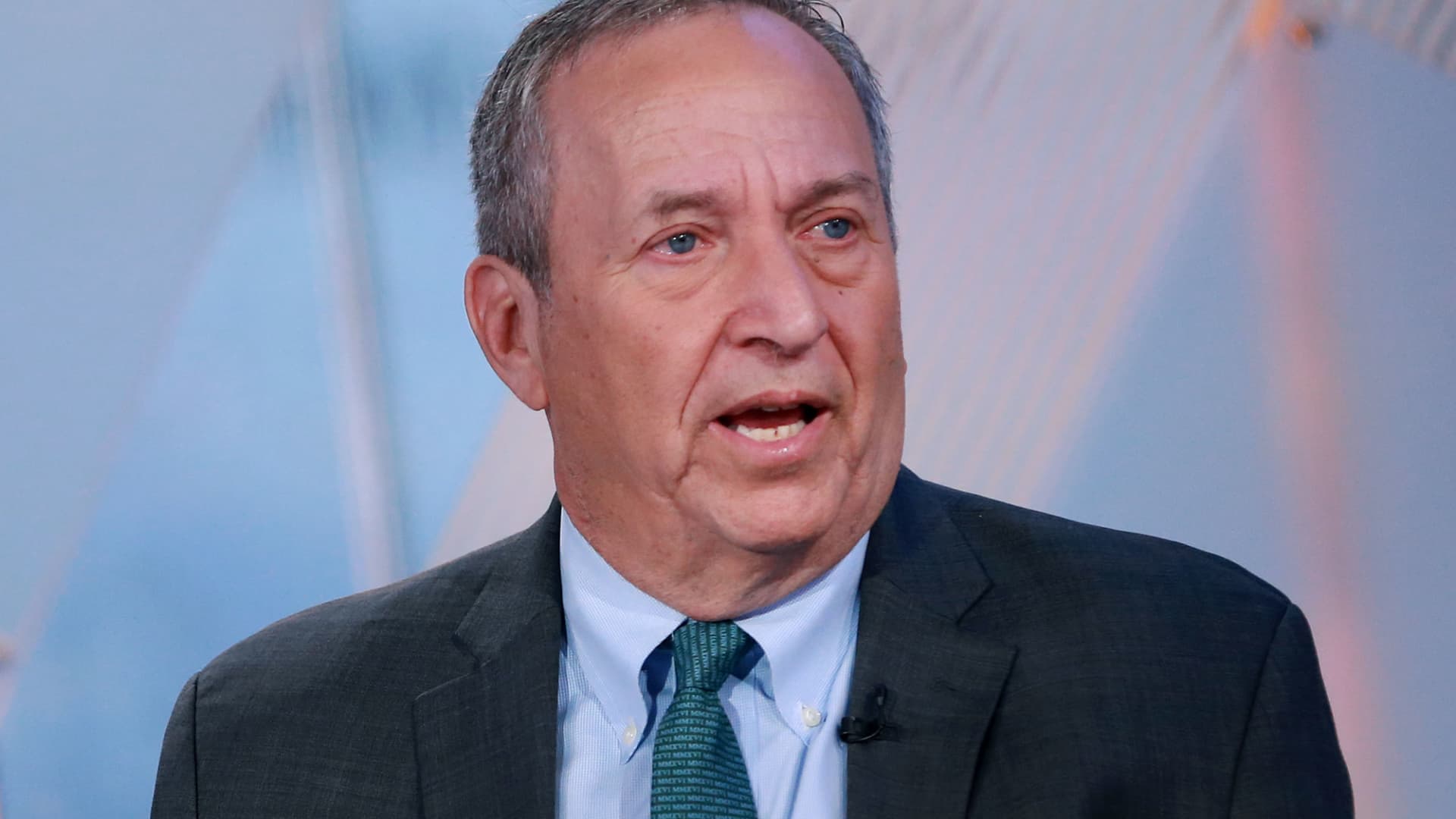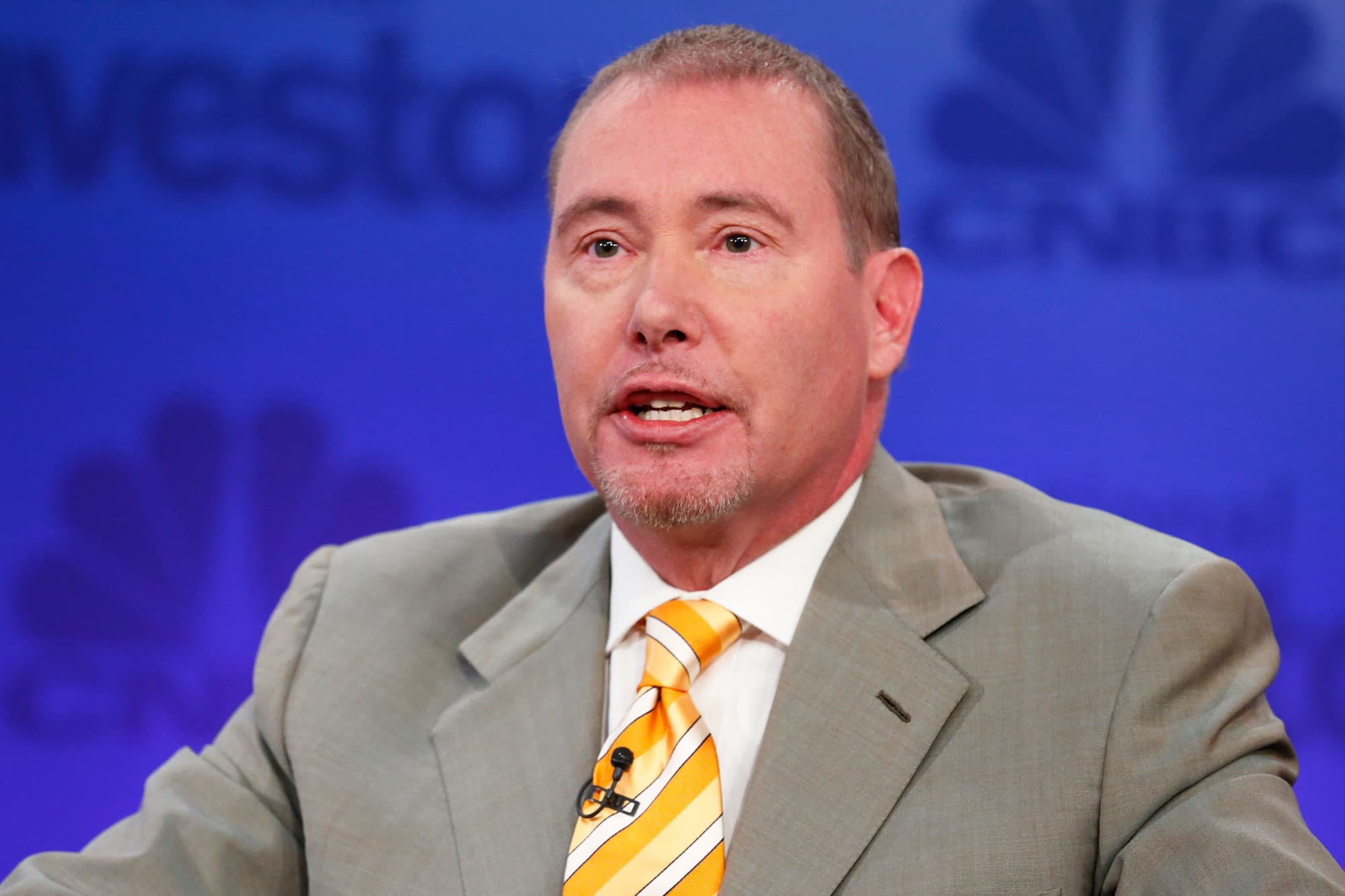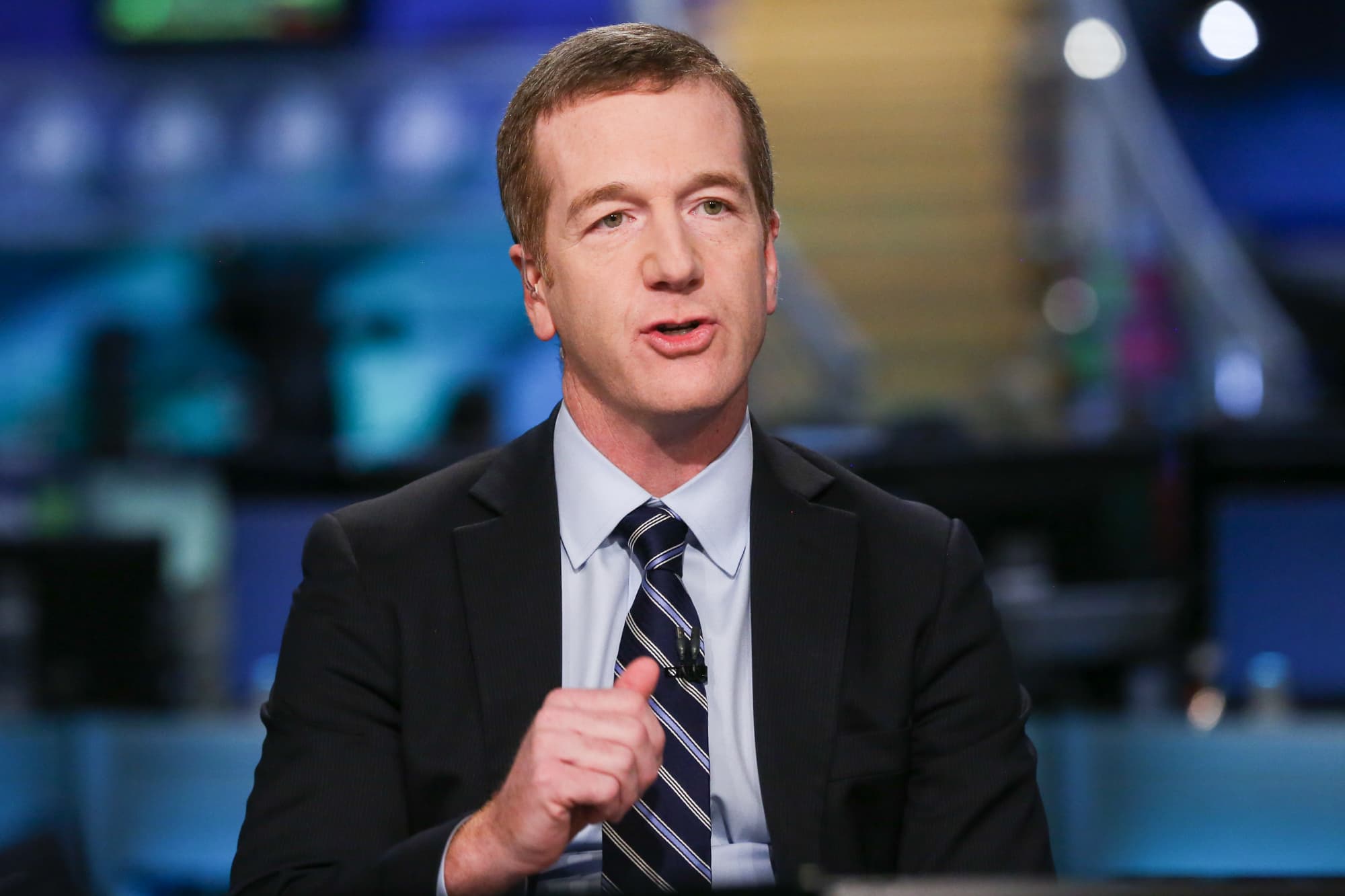LONDON — Former U.S. Treasury Secretary Larry Summers on Tuesday warned that the U.K. has lost sovereign credibility after the new government’s fiscal policy sent markets into a tailspin.
The British pound hit an all-time low against the dollar in the early hours of Monday morning, before recovering slightly on Tuesday, while the U.K. 10-year gilt yield rose to its highest level since 2008 as markets recoiled at Finance Minister Kwasi Kwarteng’s so-called “mini-budget” on Friday.
related investing news
In a series of tweets Tuesday morning, Harvard professor Summers said that although he was “very pessimistic” about the potential fallout from the “utterly irresponsible” policy announcements, he did not expect markets to capitulate so quickly.
“A strong tendency for long rates to go up as the currency goes down is a hallmark of situations where credibility has been lost,” Summers said.
“This happens most frequently in developing countries but happened with early (Former French President) Mitterrand before a U turn, in the late Carter Administration before Volcker and with Lafontaine in Germany.”
The policy announcement from Prime Minister Liz Truss’s administration last week included a volume of tax cuts not seen in Britain since 1972, funded by borrowing, and an unabashed return to the “trickle-down economics” promoted by the likes of Ronald Reagan and Margaret Thatcher. Truss and Kwarteng maintain that the policies are focused on driving economic growth.
The sudden sell-off in the pound and U.K. bond markets led economists to anticipate more aggressive interest rate hikes from the Bank of England. The central bank said Monday night that it would not hesitate to act in order to return inflation toward its 2% target over the medium term, but would appraise the impact of the new economic policy at its November meeting.
Summers noted that British credit default swaps — contracts in which one party acquires insurance against the default of a borrower from another party — still suggest “negligible default probabilities,” but have risen sharply.
“I cannot remember a G10 country with so much debt sustainability risk in its own currency. The first step in regaining credibility is not saying incredible things. I was surprised when the new chancellor spoke over the weekend of the need for even more tax cuts,” Summers said on Twitter.
“I cannot see how the BOE, knowing the government’s plans, decided to move so timidly. The suggestions that seem to have emanated from the Bank of England that there is something anti- inflationary about unbounded energy subsidies are bizarre. Subsidies affect whether energy is paid for directly or through taxes now and in the future, not its ultimate cost.”
‘Global consequences’
Summers, who served as U.S. Treasury Secretary from 1999 to 2001 under President Bill Clinton and as director of the National Economic Council from 2009 to 2010 under the Obama administration, added that the scale of Britain’s trade deficit emphasized the challenges the economy faces. The U.K. current account deficit sat at more than 8% of GDP, as of the first quarter of 2022 — well before the government’s announcement.
Summers predicted that the pound will fall below parity with both the dollar and the euro.
“I would not be amazed if British short rates more than triple in the next two years and reach levels above 7 percent. I say this because U.S. rates are now projected to approach 5 percent and Britain has much more serious inflation, is pursuing more aggressive fiscal expansion and has larger financing challenges,” he said.
U.K. inflation unexpectedly fell to 9.9% in August, and analysts recalibrated their eye-watering expectations after the government stepped in to cap annual household energy bills. However, many see the new fiscal policies driving higher inflation over the medium term.
“Financial crisis in Britain will affect London’s viability as a global financial center so there is the risk of a vicious cycle where volatility hurts the fundamentals, which in turn raises volatility,” Summers added.
“A currency crisis in a reserve currency could well have global consequences. I am surprised that we have heard nothing from the IMF.”
His warnings of global contagion echo those of U.S. Federal Reserve official Raphael Bostic, president of the Atlanta Fed, who told The Washington Post on Monday that Kwarteng’s £45 billion in tax cuts had increased economic uncertainty and raised the probability of a global recession.
Chicago Fed President Charles Evans told CNBC on Tuesday that the situation was “very challenging,” given an aging population and slowing growth, adding that the global economy would need to increase growth of labor input and technological infrastructure in order to secure long-term stability.
‘Emerging market currency crisis’
Sterling has fallen by roughly 7-8% on a trade-weighted basis in less than two months, and strategists at Dutch bank ING noted Tuesday that traded volatility levels for the pound are “those you would expect during an emerging market currency crisis.”
ING Developed Markets Economist James Smith suggested that mounting pressure, potentially coupled with comments from ratings agencies in the coming weeks, may lead investors to look for signs of a policy U-turn from the government.
“Ministers may emphasize that tax measures will be coupled with spending cuts, and there are hints at that in today’s papers,” Smith noted.
“We also wouldn’t rule out the government looking more closely at a wider windfall tax on energy producers, something which the prime minister has signaled she is against. Such a policy would materially reduce the amount of gilt issuance required over the coming year.”
The likening of the U.K. to an emerging market economy has become more prevalent among market commentators in recent days.
Timothy Ash, senior sovereign strategist at BlueBay Asset Management, said in a Politico editorial on Tuesday that rising inflation, falling living standards and a potential wage price spiral, combated by tax cuts that will exacerbate “already bloated” budget and current account deficits and increase public debt, mean the U.K. is now resembling an emerging market.
“Predictably, the market has been unconvinced by the new government’s dash-for-growth economic policy. Borrowing costs for the government have risen, making its macro forecasts now appear unsustainable. Everything is unraveling, and talk of crisis is in the air,” Ash said.
“All of the above sounds like a classic emerging market (EM) crisis country. And as an EM economist for 35 years, if you presented me with the above fundamentals, the last thing I would now recommend is a program of unfunded tax cuts.”
However, not all strategists are sold on the emerging market narrative. Julian Howard, investment director at GAM Investments, told CNBC on Tuesday that the bond sell-off was a global phenomenon and that lower taxes and deregulation could be “very helpful” over the medium term, but that the market had “chosen to completely ignore it.”
“I think really what’s happened is that sterling and gilts have been swept up in a wider global phenomenon … In the meantime, I think the U.K. might quietly get some growth going over the next six to nine months, and that has been studiously ignored,” he said.
“There is a more general inflation panic going on around the world, and I think if that eases off then we may see some more stabilization in the U.K.”
Howard said talk of an “emerging market” economy was premature and “too harsh,” and suggested the Bank of England should hold off on raising rates any further.




